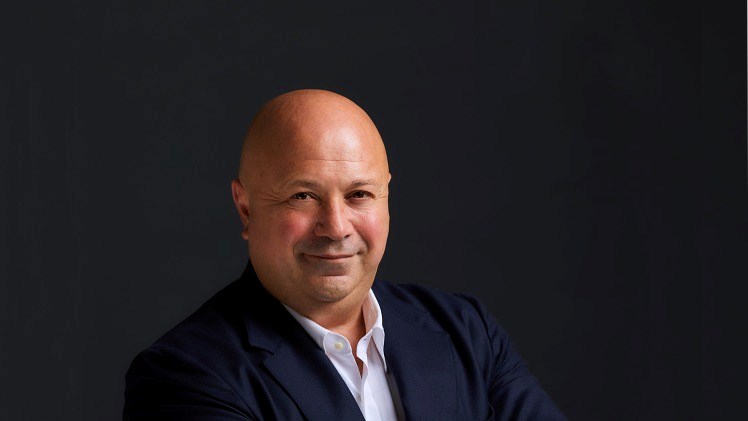
Veon CEO Kaan Terzioğlu
- Kyivstar, Veon’s unit in Ukraine, will launch a digital health service in the war-torn country
- The plan follows Kyivstar’s acquisition of local digital healthcare provider Helsi
- Veon CEO Kaan Terzioğlu highlights healthcare as an essential humanitarian service in Ukraine
- The move also bolsters Veon’s reputation as a digital services provider
- Veon isn’t the only telco to have identified healthcare as a promising vertical for digital services development
Veon has boosted its digital service provider (DSP) credentials by unveiling plans to launch a digital healthcare service in Ukraine via its local operation, Kyivstar. The move, of course, comes as Ukraine continues to battle against its neighbour Russia, which launched its invasion of the country in late February.
Kyivstar will make the service available to the entire Ukrainian population, including the more than 6 million refugees who fled the country due to the war and the estimated 8 million people who are displaced within its borders.
Veon explained the move comes after Kyivstar acquired a controlling stake in Helsi which, with more than 23 million patients, is said to be Ukraine’s “largest medical information system and leading digital healthcare provider”. The company provides software-as-a-service (SaaS) solutions within a medical information system offered to 1,300 clinics; its mobile service is used by more than 4 million people and 49,000 doctors across Ukraine.
It will enable users to book online telemedicine appointments, receive consultations and prescriptions, and have access to treatment plan preparations.
In its statement, Veon noted the move is part of its commitment to rebuild Ukraine after it previously invested in 4G expansion, which resulted in 3,500 towns in 19 rural areas gaining access to its 4G network. The step also supports the country’s Digital Ukraine strategy.
“Like communications, healthcare is an essential humanitarian service that must be available to all. For the people of Ukraine today, as they live through immense suffering during this humanitarian disaster, it is more important than ever to have access to healthcare information and medical services,” commented Veon Group CEO Kaan Terzioğlu (pictured, above).
He insisted that healthcare is “an absolute priority” in Ukraine and the launch of the digital healthcare service is aligned with the operator’s strategy to invest in and develop services that “improve our customers’ lives”.
Additionally, Kyivstar CEO Alexander Komarov announced that the Veon subsidiary plans to expand its business and focus investments on building digital ecosystems in areas such as healthcare, critical infrastructure improvements and new job openings over the next three years.
Veon claims Kyivstar is the largest digital operator in Ukraine, with 24.8 million mobile subscribers and more than 1.2 million home broadband customers as of June. The subsidiary’s services portfolio also includes internet of things (IoT), cloud solutions, mobile finance and digital TV.
As the conflict with Russia continues to disrupt the country, its impact is naturally also felt in Kyivstar’s performance. The operator’s revenues decreased 2% year on year to $252m in the second quarter of 2022, but its 4G customer base increased by nearly 12% and customers were using more data, growing 26.9% compared with the same period of 2021. Veon said its team continued to prioritise keeping the country connected and its radio network was operating at 90% availability in the period.
In boosting its presence in the healthcare sector, Veon joins a growing list of operators that have identified that particular sector as one that can offer new business opportunities by leveraging their connectivity capabilities to offer real-time digital services remotely.
Recently, Canadian telco Telus announced it will acquire healthcare provider LifeWorks for nearly $2bn to offer hybrid healthcare services and solutions using digital technologies and connected devices – see Canada’s Telus bets on digital health sector growth with $1.8bn acquisition.
Another recent example comes from Orange Business Services’ healthcare subsidiary, Enovacom, which bought Exelus, owner of mobile telemedicine solution Nomadeec, as part of its strategy to develop solutions for healthcare professionals.
And Australian operator Telstra has been operating a healthcare subsidiary, Telstra Health, for more than seven years. It offers digital health software services, such as clinical and administrative software for hospitals, as well as an electronic medical records solution.
Spanish telco Telefónica has previously partnered with UK digital health provider Tunstall Healthcare to develop solutions and services for remote patient management. And during the global Covid-19 pandemic its domestic unit, Movistar, launched a 24/7 online medical care service priced at up to €10.95 per month.
UK operator BT has also been making moves in the sector, with the creation of a Clinical Advisory Board in 2021 to work on new connected healthcare solutions.
- Yanitsa Boyadzhieva, Deputy Editor, TelecomTV
Email Newsletters
Sign up to receive TelecomTV's top news and videos, plus exclusive subscriber-only content direct to your inbox.




